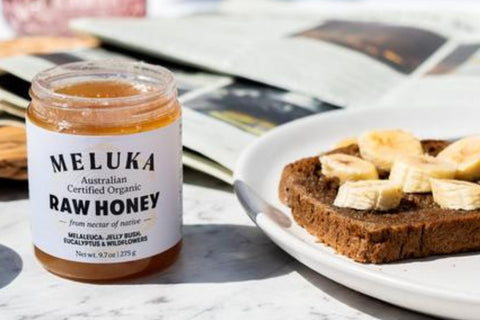
There’s no denying an uptick of interest in gut health and its role in our overall well-being. We have especially seen growing interest in the myriad of ‘-biotics’ in the gut health space.
While this has made it easier to add them to your diet the plethora of products on the market can leave you feeling confused about what you actually need to support your gut microbiome.
In our latest blog post, we break down the jargon and help set you on the path to better health, by taking a look at prebiotics, probiotics, postbiotics and synbiotics.
Prebiotics
In simple terms, prebiotics are fibres that are non-digestible food ingredients. They can help healthy bacteria grow in your gut, with the goal of supporting your digestive system’s overall function.
There’s a whole wealth of prebiotics, and different types can create various health benefits, including:
- Protecting your gastrointestinal tract and maintaining a healthy gut microbiome.
- Supporting peristalsis and gut lining integrity.
- Increasing calcium absorption.
- Reducing allergies and inflammation.
- Stabilising blood sugar and regulating hormones.
Foods with prebiotics
- Apples
- Bananas
- Berries
- Flaxseed
- Garlic
- Green veggies
- Legumes
- Raw honey
- Soybeans
- Tomatoes
Probiotics
By comparison, probiotics are beneficial microorganisms (e.g. bacteria and yeasts) that live in our bodies, especially the digestive system, and can help keep the gut healthy.
Probiotics help your body balance the ‘good’ and ‘bad’ bacteria, and can offer health benefits including:
- Improved intestinal health.
- Better immune response.
- Reduction of serum cholesterol.
Foods with probiotics
- Yoghurt
- Kombucha
- Kimchi
- Miso
- Sauerkraut
- Probiotic concentrates
Postbiotics
Postbiotics are by-products of the fermentation process that probiotics carry out in the digestive tract. Much like probiotics, their goal is to balance your gut health and maintain the integrity of your gut microbiome.
Some of the top health benefits of postbiotics can include:
- Boosted immune system.
- Reduced symptoms of digestive issues like irritable bowel syndrome (IBS).

Foods with postbiotics
- Yoghurt
- Soft cheeses
- Sourdough bread
- Buttermilk
- P3 Gut Builder – Triple Action Postbiotic Tonic
- Pickles
Synbiotics
While you might already be familiar with pre-, pro- and postbiotics, you may not have come across the term synbiotics. These are simply a combination of probiotics and prebiotics that can help inhibit the growth of pathogenic bacteria while supporting the growth of beneficial microorganisms.
With the prebiotics working to help the probiotics survive, this can ultimately balance the bacteria in your gut to benefit not only your overall gut health, but your metabolism and immune system as well.
The verdict: Which is best?
Just like your gut, there needs to be a balance in order to support a more robust microbiome and better overall health – so there’s no one specific ‘-biotic’ that is better than all the rest. Your gut health could benefit from all these elements combined.
However, incorporating postbiotics into your diet with a powerful triple-action tonic like the P3 Gut Builder can rapidly boost gut health and wellbeing. By combining prebiotics, probiotics and postbiotics, including Meluka’s unique Lactobacillus rhamnosus Beebiotic MAP01® probiotic strain, it’s a tasty way to boost your gut health and has been linked to scientific studies for improved gut microbial diversity.
Explore the wide range of Meluka products at our online store, and get healthy ideas at our blog for ongoing health and wellness.




